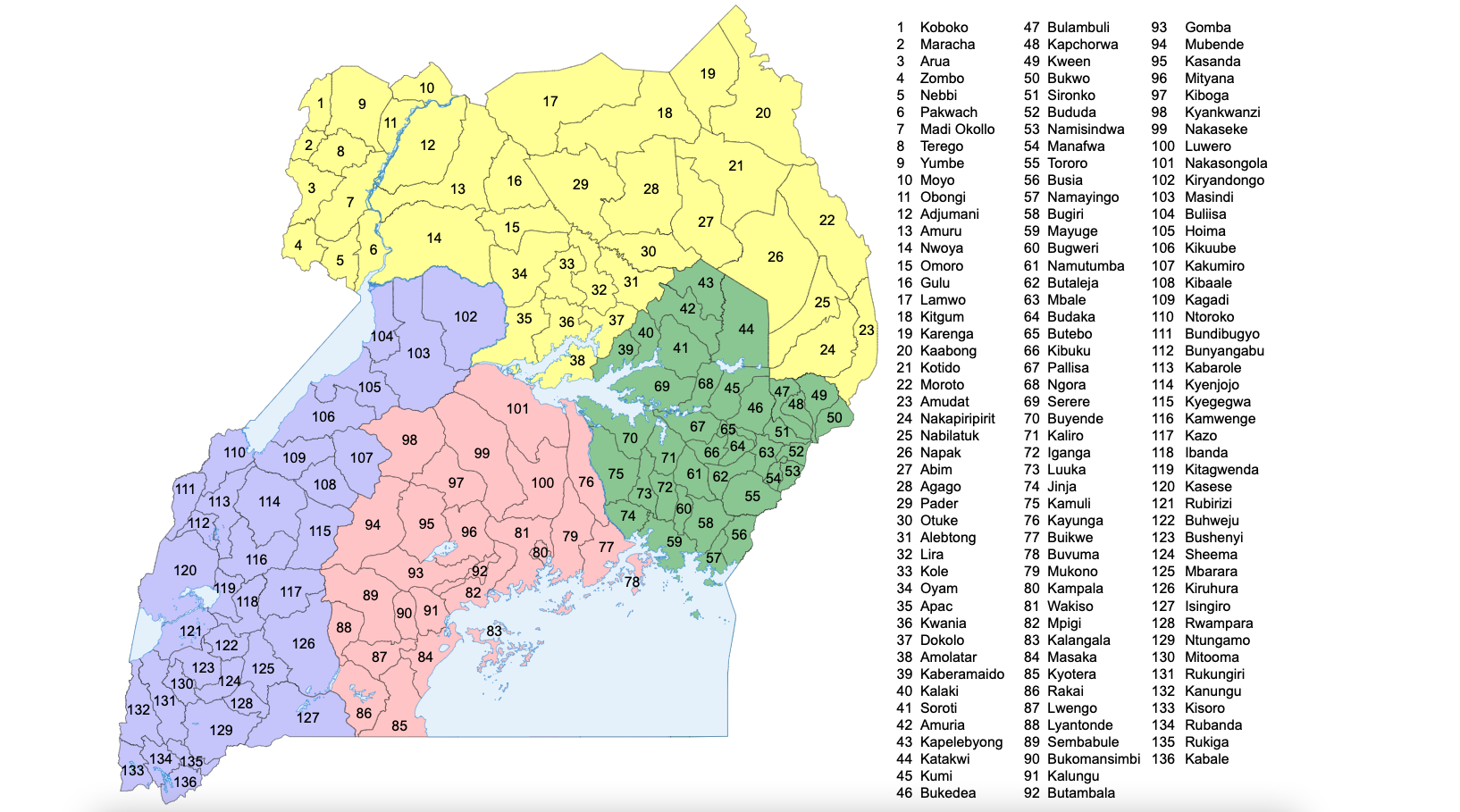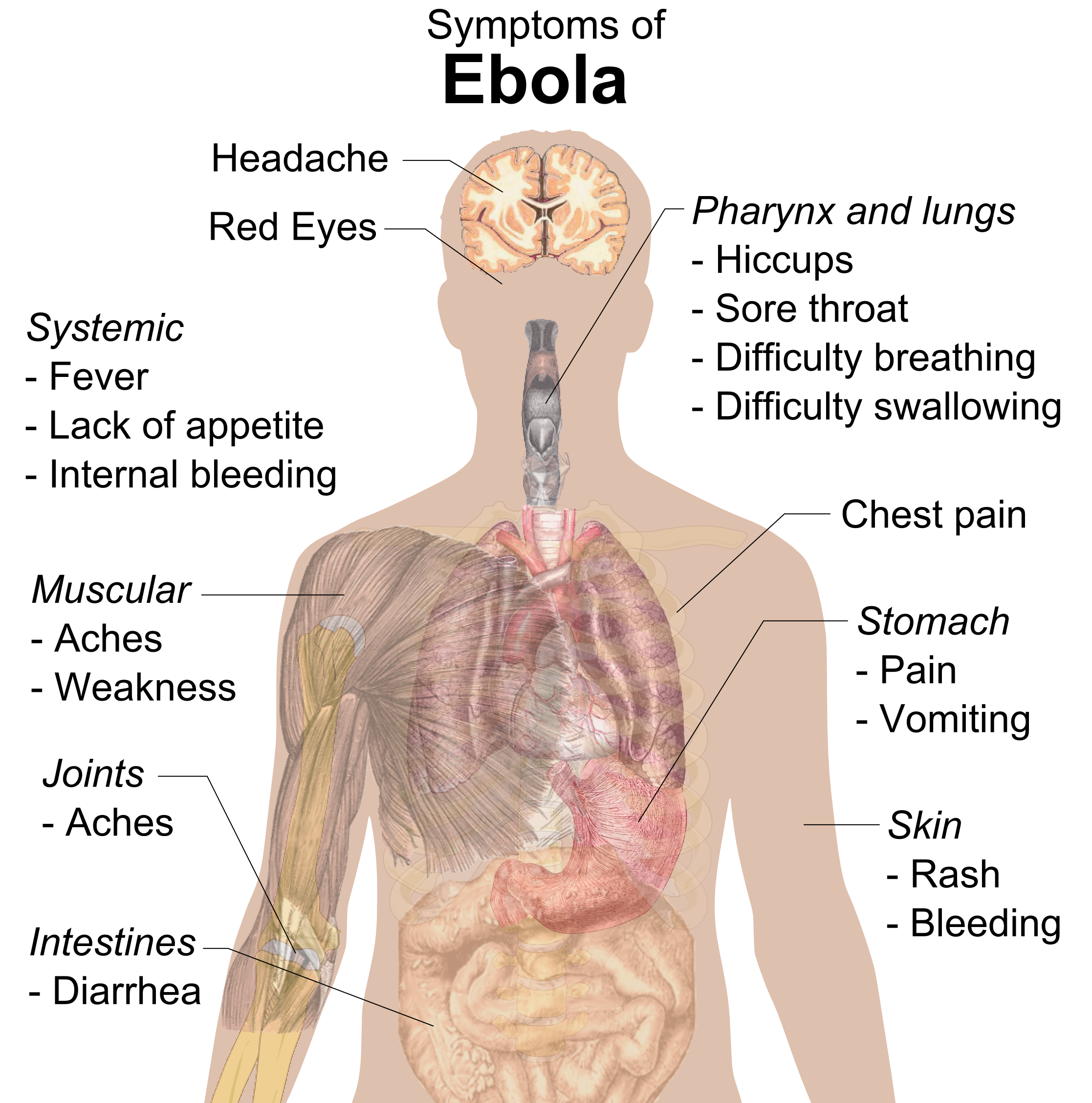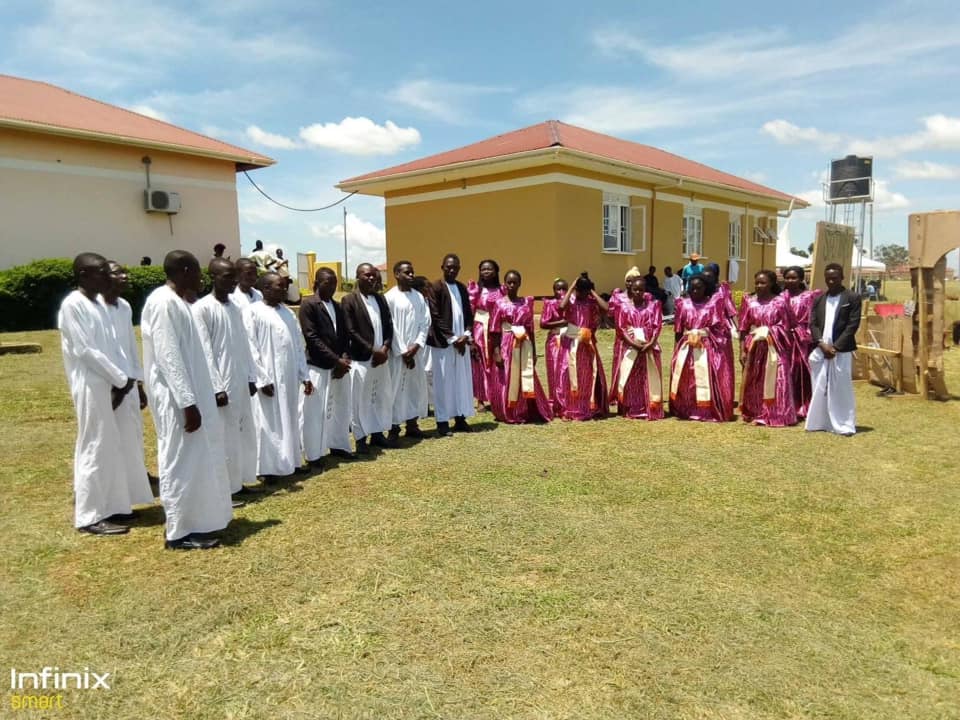|
Kibaale District
Kibaale District, is a district in the Western Region of Uganda. The district headquarters are in the town of Kibaale. Location Kibaale District is bordered by Hoima District to the north, Kyankwanzi District to the north-east, Mubende District to the east, Kyegegwa District to the south-east, Kyenjojo District and Kabarole District to the south-west, and Ntoroko District to the west. The district headquarters at Kibaale are approximately , by road, west of Kampala, Uganda's capital and largest city. The coordinates of the district are 00°47'00.0"N, 31°05'00.0"E (Latitude:0.783333; Longitude:31.083333). Overview The largest town in the district is Kagadi, in Buyaga County, followed by Karuguuza in Buyanja County. A main trunk road was built in 1997, the result of co-operation between the governments of Uganda and Ireland. The road connects the towns of Mubende, Kakumiro, Kibaale, and Kagadi. The Ugandan government had plans in 2012 to split the district into three smaller di ... [...More Info...] [...Related Items...] OR: [Wikipedia] [Google] [Baidu] |
Districts Of Uganda
As of 17 November 2020, Uganda is divided into 136 districts and the capital city of Kampala, which are grouped into four administrative regions. Since 2005, the Ugandan government has been in the process of dividing districts into smaller units. This decentralization is intended to prevent resources from being distributed primarily to chief towns and leaving the remainder of each district neglected. Each district is further divided into Counties of Uganda, counties and municipalities, and each county is further divided into Sub-counties of Uganda, sub-counties. The head elected official in a district is the chairperson of the Local Council (Uganda), Local Council five (usually written with a Roman numeral V). Below are population figures from the 2014 census (tables show population figures for districts that existed in 2014). __NOTOC__ Districts created since 2015 In September 2015, the Parliament of Uganda created 23 new districts, to be phased in over the next four years ... [...More Info...] [...Related Items...] OR: [Wikipedia] [Google] [Baidu] |
Kagadi
Kagadi is a town in the Western Region of Uganda. It is the commercial and administrative headquarters of Kagadi District. Location Kagadi is in Buyaga County, approximately south-west of Hoima, the largest town in the Bunyoro sub-region. This is approximately , by road, west of Kampala, Uganda's capital and largest city. The coordinates of the town are 0°56'28.0"N, 30°48'39.0"E (Latitude:0.941111; Longitude: 30.810833). Population The 2002 national population census put the population of Kagadi at 13,568. In 2010, the Uganda Bureau of Statistics (UBOS) estimated the population at 20,600. In 2011, UBOS estimated the mid-year population at 21,600. In 2014, the national census put the population at 22,813. Points of interest The following points of interest lie within or close to the town limits: * Offices of Kagadi District local government * Offices of Kagadi Town Council * Kagadi Hospital, a 120-bed public hospital administered by the Uganda Ministry of Health * Mubende– ... [...More Info...] [...Related Items...] OR: [Wikipedia] [Google] [Baidu] |
Ebola Virus Disease
Ebola, also known as Ebola virus disease (EVD) and Ebola hemorrhagic fever (EHF), is a viral hemorrhagic fever in humans and other primates, caused by ebolaviruses. Symptoms typically start anywhere between two days and three weeks after becoming infected with the virus. The first symptoms are usually fever, sore throat, muscle pain, and headaches. These are usually followed by vomiting, diarrhoea, rash and decreased liver and kidney function, at which point, some people begin to bleed both internally and externally. The disease kills between 25% and 90% of those infected – about 50% on average. Death is often due to shock from fluid loss, and typically occurs between six and 16 days after the first symptoms appear. Early treatment of symptoms increases the survival rate considerably compared to late start. The virus spreads through direct contact with body fluids, such as blood from infected humans or other animals, or from contact with items that have recently been conta ... [...More Info...] [...Related Items...] OR: [Wikipedia] [Google] [Baidu] |
Daily Monitor
The ''Daily Monitor'' is a Ugandan independent daily newspaper. Its name is shared by the ''Saturday Monitor'' and ''Sunday Monitor'', which are also published by Monitor Publications Limited. ''Daily Monitor'' averaged a daily circulation of 24,230 newspapers in September 2011. By the fourth quarter of 2019, that figure had dropped to 16,169 copies daily. Location The headquarters of the ''Daily Monitor'' and the Daily Monitor Publications, as well as the printing press of the newspaper, are located at 29-35 8th Street (Namuwongo Road) in the Industrial Area of Kampala, Uganda's capital and largest city. Overview The newspaper was established in 1992 as ''The Monitor'', and relaunched as the ''Daily Monitor'' in June 2005. The paper asserts that its private ownership guarantees the independence of its editors and journalists. The newspaper headquarters are housed in the same building that houses the other investments owned by Monitor Publications Limited, including ''Daily Monit ... [...More Info...] [...Related Items...] OR: [Wikipedia] [Google] [Baidu] |
Ugandan Lost Counties Referendum, 1964
The lost counties referendum of November 1964 was a local referendum held to decide whether the "lost counties" of Buyaga and Bugangaizi in Uganda (modern day Kibaale District) should continue to be part of the Kingdom of Buganda, be transferred back to the Kingdom of Bunyoro, or be established as a separate district. The electorate, consisting of the residents of the two counties at the time of independence, voted overwhelmingly to be returned to Bunyoro. Background In 1893–4, British colonel Henry Colvile invaded the Kingdom of Bunyoro in an effort to secure and expand the nascent Uganda Protectorate, which initially included solely the Kingdom of Buganda. Colvile promised all lands south of the River Kafu to Buganda in return for their support, and following the conflict the relevant counties were duly transferred as promised, with the transfer recognised in the Buganda Agreement (1900). Despite deliberate attempts by the Bugandan government to integrate the resident Bany ... [...More Info...] [...Related Items...] OR: [Wikipedia] [Google] [Baidu] |
Baganda
The Ganda people, or Baganda (endonym: ''Baganda''; singular ''Muganda''), are a Bantu ethnic group native to Buganda, a subnational kingdom within Uganda. Traditionally composed of 52 clans (although since a 1993 survey, only 46 are officially recognised), the Baganda are the largest people of the bantu ethnic group in Uganda, comprising 16.5 percent of the population at the time of the 2014 census. Sometimes described as "The King's Men" because of the importance of the king, or Kabaka, in their society, the Ganda number an estimated 5.56 million in Uganda. In addition, there is a significant diaspora abroad, with organised communities in Canada, South Africa, Sweden, the United Kingdom, and the United States. Traditionally, they speak Luganda. History Early history The early history of the Ganda is unclear, with various conflicting traditions as to their origins. One tradition holds that they are descendants of the legendary figure of Kintu, the first human accordi ... [...More Info...] [...Related Items...] OR: [Wikipedia] [Google] [Baidu] |
Kafu River
River Kafu is a river in Uganda, in East Africa. On some older maps, the river is labelled as River Kabi. Location The Kafu River is located in the western part of Uganda. It starts from a swamp approximately , northeast of the village of Kitoma, in Kibaale District, Western Uganda. It flows eastwards at first, then it turns north, to empty into the Victoria Nile, approximately , upstream of the town of Masindi Port, in Masindi District, also in Western Uganda. The source of River Kafu is located near Kitoma, with coordinates: Latitude:1.1500; Longitude:31.0820. River Kafu enters the Victoria Nile near Masindi Port, with coordinates: Latitude:1.6475; Longitude:32.0945. On its course eastwards, northeastwards and northwards, the river traverses or forms the borders of the following districts : Kibaale District, Hoima District, Kyankwanzi District, Nakaseke District, Nakasongola District and Masindi District. Overview The swamp, out of which River Kafu arises, is also transvers ... [...More Info...] [...Related Items...] OR: [Wikipedia] [Google] [Baidu] |
Buganda Kingdom
Buganda is a Bantu kingdom within Uganda. The kingdom of the Baganda people, Buganda is the largest of the traditional kingdoms in present-day East Africa, consisting of Buganda's Central Region, including the Ugandan capital Kampala. The 14 million ''Baganda'' (singular ''Muganda''; often referred to simply by the root word and adjective, Ganda) make up the largest Ugandan region, representing approximately 26.6% of Uganda's population. Buganda has a long and extensive history. Unified in the 13th century under the first king Kato Kintu, the founder of Buganda's Kintu Dynasty, Buganda grew to become one of the largest and most powerful states in East Africa during the 18th and 19th centuries. Before the 12th century, the present-day Buganda region was a kingdom known as Muwaawa, which means a sparsely populated place. During the Scramble for Africa, and following unsuccessful attempts to retain its independence against British imperialism, Buganda became the center of the Ug ... [...More Info...] [...Related Items...] OR: [Wikipedia] [Google] [Baidu] |
1900 Uganda Agreement
Signed in March 1900, this agreement formed the basis of British relations with Buganda, the Kabaka (King) was recognised as ruler of Buganda as long he remained faithful to her Majesty, the Lukiko (council of chiefs) given statutory recognition. This was following another agreement signed in 1894 in which the Kingdom of Buganda, then known as Uganda, was declared a British Protectorate.This agreement is also known as the Buganda Charter of Rights and was upheld for more than 50 years. The Uganda Agreement of 1900 The Uganda Agreement, 1900 (See Native Agreement and Buganda Native Laws, Laws of the Uganda Protectorate, Revised Edition 1935 Vol. VI, pp. 1373–1384; Laws of Uganda 1951 Revised Edition, Vol. VI, pp. 12–26) We, the undersigned, to wit, Sir Henry Hamilton Johnston, K.C.B., Her Majesty's Special Commissioner, Commander-in -Chief and Consul-General for the Uganda Protectorate and the adjoining Territories, on behalf of Her Majesty the Queen of Great Bri ... [...More Info...] [...Related Items...] OR: [Wikipedia] [Google] [Baidu] |
Lost Counties
Lost may refer to getting lost, or to: Geography *Lost, Aberdeenshire, a hamlet in Scotland *Lake Okeechobee Scenic Trail, or LOST, a hiking and cycling trail in Florida, US History *Abbreviation of lost work, any work which is known to have been created but has not survived to the present day Arts, entertainment, and media Films * ''Lost'' (1950 film), a Mexican film directed by Fernando A. Rivero * ''Lost'' (1956 film), a British thriller starring David Farrar * ''Lost'' (1983 film), an American film directed by Al Adamson * ''Lost!'' (film), a 1986 Canadian film directed by Peter Rowe * ''Lost'' (2004 film), an American thriller starring Dean Cain * ''The Lost'' (2006 film), an American psychological horror starring Marc Senter Games *'' Lost: Via Domus'', a 2008 video game by Ubisoft based on the ''Lost'' TV series * ''The Lost'' (video game), a 2002 vaporware game by Irrational Games Literature * ''Lost'' (Maguire novel), a 2001 horror/mystery novel by Gregory Maguire * '' ... [...More Info...] [...Related Items...] OR: [Wikipedia] [Google] [Baidu] |
Bunyoro
Bunyoro or Bunyoro-Kitara is a Bantu kingdom in Western Uganda. It was one of the most powerful kingdoms in Central and East Africa from the 13th century to the 19th century. It is ruled by the King (''Omukama'') of Bunyoro-Kitara. The current ruler is Solomon Iguru I, the 27th ''Omukama''. The people of Bunyoro are also known as Nyoro or Banyoro (singular: ''Munyoro''); ''Banyoro'' means "people of Bunyoro"). The language spoken is Nyoro, also known as Runyoro. In the past, the traditional economy revolved around big game hunting of elephants, lions, leopards, and crocodiles. Today, the Banyoro are now agriculturalists who cultivate bananas, millet, cassava, yams, cotton, tobacco, coffee, and rice. The people are primarily Christian. History Establishment The kingdom of Bunyoro was established in the early 14th century by Rukidi-Mpuga after the dissolution of the Chwezi Empire.Mwambutsya, Ndebesa,Pre-capitalist Social Formation: The Case of the Banyankole of Southwester ... [...More Info...] [...Related Items...] OR: [Wikipedia] [Google] [Baidu] |
The Observer (Uganda)
''The Weekly Observer'' is a Ugandan weekly newspaper headquartered in Kamwookya, Kampala. It is one of the largest privately owned papers in the country co-founded by maverick journalist John Kevin Aliro and nine other directors In 2007, its reporter Richard M Kavuma won the CNN Multichoice African Journalist of the Year award. The newspaper was founded in 2004 and celebrated 10 years of existence in March 2014.Pius Muteekani KatunziUganda: The Observer, A Gamble That Has Paid Off'' AllAfrica.com'' 28 March 2014. Retrieved 22 February 2013. Tom kiss of jamila See also * List of newspapers in Uganda * Media in Uganda The mass media in Uganda includes print, television, radio and online sectors, and coverage is split between both state-run outlets and privately held outlets as well as English-language outlets and Luganda-language outlets. Print media in Uganda ... References External links * * ACME https://acme-ug.org/2018/07/04/i-gave-observer-what-i-could-now-its-t ... [...More Info...] [...Related Items...] OR: [Wikipedia] [Google] [Baidu] |





